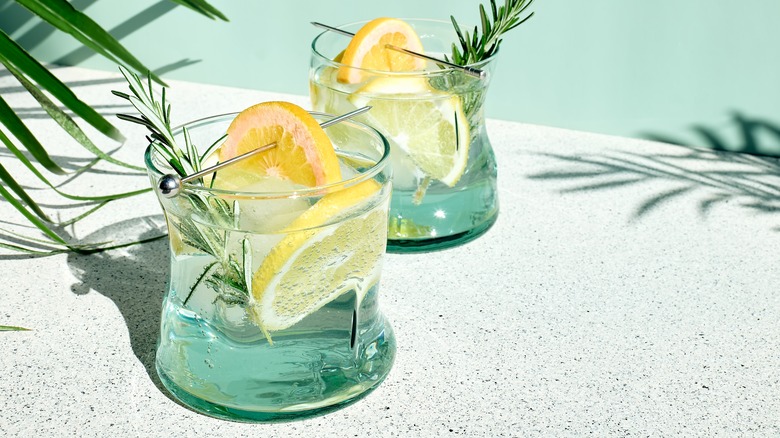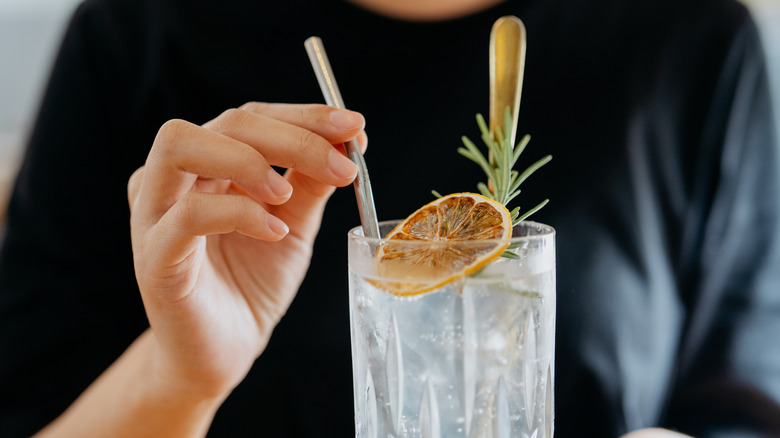Your Favorite Non-Alcoholic Beverages May Not Actually Be Booze-Free
The sober-curious movement is on the rise, with many young adults reducing their alcohol intake or ditching booze altogether. A Civic Science survey reveals that the number of U.S. adults interested in a sober lifestyle has jumped from 12% in 2020 to 19% in 2022. And beverage companies are making the switch easier by releasing more non-alcoholic options. However, those cutting alcohol due to addiction or health concerns should note that not all beverages marketed as non-alcoholic are alcohol-free.
TikTok creator @brittanyjade___ discovered this while researching Free AF, a brand that claims its products contain 0% alcohol. Despite this claim, they do contain small amounts of alcohol (under .5%). In her TikTok video, Jade reveals that she found this information on the company's FAQ page. She laments that Free AF's homepage and social media accounts don't clarify that their products contain alcohol, calling their advertising "misleading." Jade, who has been sober for several years, wants to warn others about such marketing tactics.
"It's such a small amount that it says it's safe for pregnant and breastfeeding women," Jade says, "but I think it's just the fact that I wouldn't have drank it if I knew it had this small trace amounts." The confusion stems from the fact that U.S. products can legally be dubbed "non-alcoholic" if they contain under .49% ABV (per Food Network). Those hoping to completely abstain from alcohol should avoid products labeled "non-alcoholic."
If you or anyone you know needs help with addiction issues, help is available. Visit the Substance Abuse and Mental Health Services Administration website or contact SAMHSA's National Helpline at 1-800-662-HELP (4357).
How to ensure your beverages are actually alcohol-free
Although beverages in the U.S. can be marked "non-alcoholic" while containing trace levels of alcohol, they can't be labeled "alcohol-free." Anyone committed to remaining fully sober will want to look for "alcohol-free" verbiage on product packaging. Unfortunately, many non-alcoholic beers and canned mocktails aren't fully booze-free. There's also research suggesting that canned mocktails may have other downsides, such as increasing cravings for alcohol (per The Washington Post).
Still, alcohol-free beverages present a better alternative than non-alcoholic products, allowing sober individuals to enjoy a drink without exposing themselves to alcohol. Making mocktails at home eliminates such worries, as well. Utilizing ingredients confirmed as alcohol-free will put sober and sober-curious individuals at ease.
Homemade alternatives are probably the safest bet for anyone looking to cut alcohol completely. However, knowing the lingo (and how to navigate it) helps, too. Videos like Jade's raise awareness about alcohol alternatives, ensuring that everyone can make the smartest choices for their health.

